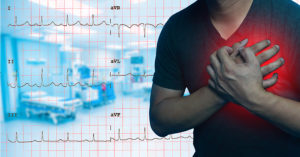 There is a good chance that you will feel a heart arrhythmia at some point in your lifetime. A large percentage of the population will experience abnormal heart beats. Most of the time these off beats are harmless. They can happen in perfectly healthy people who show no sign of heart disease. There are, however, some types of heartbeat abnormalities that can be serious and even potentially deadly. Heart disease also raises the risk of fluctuations.
There is a good chance that you will feel a heart arrhythmia at some point in your lifetime. A large percentage of the population will experience abnormal heart beats. Most of the time these off beats are harmless. They can happen in perfectly healthy people who show no sign of heart disease. There are, however, some types of heartbeat abnormalities that can be serious and even potentially deadly. Heart disease also raises the risk of fluctuations.
Heart rhythm disturbances are categorized 3 ways. Electrical, circulatory, and structural. Cardiologists can help to diagnose and treat disorders of the heart.
ELECTRICAL disorders:
Abnormal heart rhythms are caused by issues with the electrical system that regulates the usually steady heartbeat. The heart rate may be slowed or speeded up; it may stay steady or become chaotic (irregular and disorganized). Some arrhythmia types are very dangerous and cause sudden cardiac death, while others may be strange to feel, but not life threatening.
CIRCULATORY Disorders:
High Blood Pressure and coronary artery disease (causing blockages) are the main causes of blood vessel disorders. Circulatory issues such as these can result in a stroke or heart attack. Fortunately, there are many preventative and treatment options.
STRUCTURAL Disorders:
Heart muscle disease (cardiomyopathy) and congenital abnormalities (problems in the development of the heart and blood vessels which are present from birth) are two issues that can damage the heart muscle or valves.
What does an arrhythmia feel like?
Physically, what an arrhythmia feels like is a skipping, a quickening, a slowing, or even like you have just dropped over the first fall of a roller coaster where your heart pauses for a moment. If you notice this happening repeatedly it is advisable to check with a cardiologist to be sure that what you are experiencing is harmless and not something that needs to be looked at or treated.
If you are in the Tampa Bay area, the physicians at Tampa Cardiovascular Associates would like to offer their services. WWW.TAMPACARDIO.COM 813-975-2800. Give us a call to schedule your consultation and exam and find out for sure.

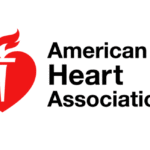
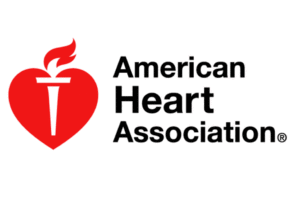 Lifestyle has a huge effect on your health and wellbeing.
Lifestyle has a huge effect on your health and wellbeing.
 Never ignore varicose veins for two reasons:
Never ignore varicose veins for two reasons: 
 Studies reveal that optimistic, happy, glass half full people are more likely to have good heart health as well.
Studies reveal that optimistic, happy, glass half full people are more likely to have good heart health as well.
 If you’ve ever experienced depression you understand that it can sometimes feel like you have a broken or heavy heart.
If you’ve ever experienced depression you understand that it can sometimes feel like you have a broken or heavy heart. 
 Sugar hits the pleasure center of the brain in the same way that hard drugs do. This makes refined sugar extremely addictive and very hazardous to your health. Moderation is key and elimination even better.
Sugar hits the pleasure center of the brain in the same way that hard drugs do. This makes refined sugar extremely addictive and very hazardous to your health. Moderation is key and elimination even better.
 The temperatures are dropping fast. With the sudden change in weather, our bodies sometimes don’t fully adjust right away. This can put a dent in our immunity and leave us exposed to potential cold and flu viruses going around.
The temperatures are dropping fast. With the sudden change in weather, our bodies sometimes don’t fully adjust right away. This can put a dent in our immunity and leave us exposed to potential cold and flu viruses going around.
 We were all brought up with the four food groups. Meat & Dairy, Grains, Vegetables & Fruits, and “other”. It didn’t include or take into account all of this frozen, premade, and fast food we are bombarded with. While technically they still fall into those groups, these foods are chemically altered, GMO, and preservatived to death. There is little to no nutritional value in a lot of it.
We were all brought up with the four food groups. Meat & Dairy, Grains, Vegetables & Fruits, and “other”. It didn’t include or take into account all of this frozen, premade, and fast food we are bombarded with. While technically they still fall into those groups, these foods are chemically altered, GMO, and preservatived to death. There is little to no nutritional value in a lot of it.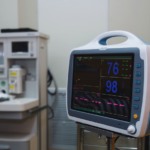
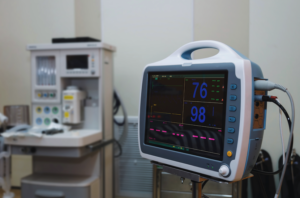 If your doctor has ever told you “You need an EKG”. You may know the feeling of confusion and worry both in an instant. We do not know how much medical knowledge each of our patients actually have come into our office. We don’t want to insult you by seemingly talking down to you, so sometimes we don’t explain as much as maybe we should.
If your doctor has ever told you “You need an EKG”. You may know the feeling of confusion and worry both in an instant. We do not know how much medical knowledge each of our patients actually have come into our office. We don’t want to insult you by seemingly talking down to you, so sometimes we don’t explain as much as maybe we should.
 While you may think it would be very easy to identify vein disease the truth is it doesn’t always show up in the form you might think. Visible purple or blue veins which are lumpy and twisted are a sure sign of varicose veins as well as small wiggly lines that spider web in appearance are spider veins, but many times you may experience leg pain and have no visual cues.
While you may think it would be very easy to identify vein disease the truth is it doesn’t always show up in the form you might think. Visible purple or blue veins which are lumpy and twisted are a sure sign of varicose veins as well as small wiggly lines that spider web in appearance are spider veins, but many times you may experience leg pain and have no visual cues.